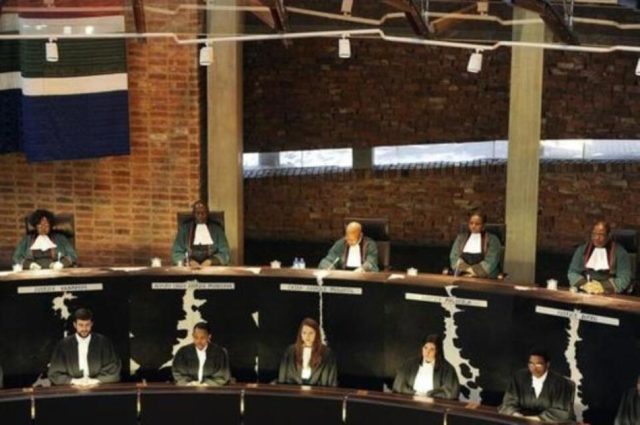The union is consulting with senior lawyers about approaching the Concourt to request that it compel the government to devolve the current national lockdown to a regional level.
Pretoria – The Solidarity Movement said on Friday it was consulting with senior lawyers about approaching the Constitutional Court to request that the superior court compel the government to devolve the current national lockdown to a regional level.
According to the Solidarity, “there is no reason why in certain regions the persistent, irrational lockdown measures” in South Africa cannot be relaxed to level one as soon as possible.
The movement said it had become increasingly clear that South Africa had already achieved the potential benefit that could be derived from a lockdown and that a further protracted lockdown would not curb the virus’s infection rate, but would result in more people being unemployed and finding themselves at the mercy of others.
The movement said that although the virus had not reached its peak yet, the lockdown in its current format would not prevent it from peaking.
Solidarity Movement chairperson Flip Buys said the African National Congress-led government was sabotaging people’s jobs with this lockdown.
“It appears that government’s proposed fragmentation of the lockdown into different regions and provinces was merely lip service. It is inconceivable that the Limpopo and North West Province, which respectively have 17 and 29 active cases province-wide, are still on level 4 of the lockdown.
“Furthermore, Mpumalanga has 33 and the Northern Cape 12 active cases, while people across those provinces cannot go to work to provide food for their children,” Buys said.
He says it makes no sense to have the entire country or entire provinces in such a “hard” lockdown.
“Realistically, the lockdown in provinces with a low infection rate can be relaxed to level one and they can merely be monitored. The idea behind the lockdown was to prevent the health system from being overwhelmed.
“An approach that is more federalist in nature will still achieve this goal as the virus moves through different regions,” Buys said.
Solidarity insists that the time has come to relax the measures urgently, allowing South Africans to return to work in areas where the infection rate is low.
“People can no longer be prevented from taking care of their families. Returning to work must be done while priority is given to safety and hygiene in the workplace,” Buys said.
Meanwhile, South Africa’s cabinet convened for a special meeting via a virtual platform on 12 and 13 May to apprise the National Coronavirus Command Council on progress achieved and challenges experienced in the implementation of level 4 of the risk-adjusted approach towards reducing the spread of Covid-19.
Citing the progress made in flattening the curve of the pandemic and the public health system’s improved capacity to deal with a rise in infections, the cabinet approved the further easing of lockdown restrictions.
“Ministers will initiate and finalise broad-ranging consultations within government, key sectors of the economy and with civil society. This will lead to the general relaxing of the lockdown restrictions from level 4 towards level 3,” the cabinet said in a statement.
African News Agency (ANA)








